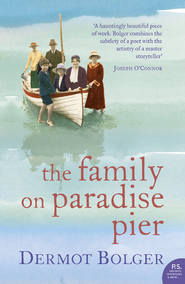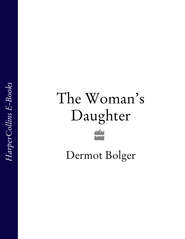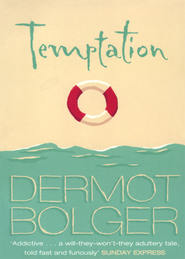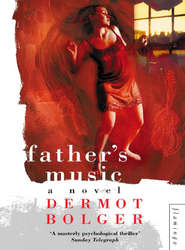По всем вопросам обращайтесь на: info@litportal.ru
(©) 2003-2024.
✖
The Valparaiso Voyage
Автор
Год написания книги
2018
Настройки чтения
Размер шрифта
Высота строк
Поля
‘What were you saying to that Josie woman from the terrace?’ she would demand if I was a minute late home from school. ‘Don’t think I didn’t see you gabbing to her when I picked up Cormac in the car. Does she think we’re so poor she needs to give you food from her scabby cottage that should have been bulldozed long ago? You get home here on time tomorrow.’
Shortly before my eleventh birthday Mr Casey had begun to interfere. Trenchantly at first, after a long period of simmering observation, and then in subtle ways which made us both conspirators. His garden was an ordered world of potato beds, gooseberry bushes and cabbage plants. A compost heap stood in the far corner, away from the lean-to where he made furniture most evenings. Close to the wall of my father’s outhouse he’d erected a small circle of cement blocks, used to burn withered stalks and half his household rubbish. Before Phyllis’s arrival I remember accompanying my father and Mr Casey on occasional outings to his brother’s farm near Trim on a Saturday morning, returning with a trailer full of logs. Long into the evening his electric saw would be at work, with sparks dancing like fireflies, logs thrown over the hedge into our garden and the softest pile of sawdust for me to play with.
Their joint ventures stopped however after Phyllis perceived some real or imagined slight in Mrs Casey’s tone towards her. Afterwards both men kept each other at bay behind a facade of hearty greetings shouted over the hedge. But they hadn’t properly spoken for two years before the winter evening when Mr Casey heard me crying through the outhouse wall. I recall the sudden thump of his hand against the corrugated iron and my shock, after being so self-absorbed in my shell, that an outsider could overhear me.
‘Is that you, Brendan? Surely to God he hasn’t still got you out there on a bitter night like this?’
His voice made me hold my breath, afraid to reply. I knew I had let my father down and done wrong by allowing Mr Casey to hear me, I wanted him to go away but he kept asking if I was all right. Was I thirsty, scared, had they given me anything to eat? ‘I know you’re in there,’ he shouted. ‘Will you for God’s sake say something, child.’
Possibly my inability to reply finally made him snap. But there was nothing I could say that wouldn’t make matters worse. I huddled against the corrugated iron, hearing the dying crackle of his bonfire and longing for him to go indoors so that I could creep out and sit near it for a time until the embers died. Injun Brendan who roamed the gardens at night, forever on the trail with no time for tepees or squaws.
When Mr Casey’s voice eventually died away I stopped shaking. Too scared to leave the outhouse, I closed my eyes, imagining that my fist – pressed for comfort between my tightly clenched legs – was the feel of a horse beneath me. I rocked back and forth, forcing the warmth of the fantasy to claim me. Injun Brendan, always moving along to stay free. The bruises on my legs were no longer caused by Pete Clancy’s gang lashing out at me as I raced past to get home from school in time. Instead they were rope burns after escaping from cattle rustlers. I fled bareback along trails known only to myself, seeking out the recently constructed makeshift wigwam of corrugated iron sheets which Clancy’s gang met in by the river so that I could tear it to the ground. I had seen it one night among bushes by the Boyne but even in the dark I hadn’t dared approach it. Now the fantasy of destroying it filled the ache in my stomach, blocking reality out until the sound of raised adult voices intruded.
‘Don’t you tell me how I can or cannot punish my own son!’
‘Punish him for what? He’s been two years down in that blasted shed. If his poor mother was alive…’
The voices were so loud I thought they were in the garden. But when I checked through the chicken wire I could see Mr Casey in the dining-room window, with my father looking like he was only moments away from coming to blows with him.
‘It’s no concern of yours, Seamus.’
‘It’s a scandal to the whole bloody town.’
‘There’s never been cause of scandal in this house.’ Phyllis’s voice entered the fray, suddenly enraged. ‘Just work for idle tongues in this God-forsaken town.’
The more they argued, the more frightened of retribution I became. I looked up to see that their voices had woken Cormac. He entered the back bedroom and sleepily looked out of the window. By this time I didn’t begrudge him owning my old bedroom. He looked perfect in that light, gazing down towards the shed, with his patterned pyjamas and combed hair. I was sure he couldn’t see me in the dark but he began to wave and kept waving. We never really spoke now. Phyllis discouraged contact at home and at school we had nothing left to say to each other. The adult voices threw accusations at each other. Cormac stayed at the window until I forced my hand through a gap in the chicken wire, scraping my flesh as I managed to wave back to him. Then he smiled and was gone. When the voices stopped I lay awake for hours, with the memory of Cormac’s body framed in the window keeping me warm as I waited for vengeful footsteps that never came.
It was half-nine before Ebun stirred. Niyi had made coffee and quietly left a mug on the floor beside me, before relaxing his vigilance long enough to disappear down the corridor to the bathroom. That was when I became aware of Ebun languidly watching me slip into my jeans. I hurriedly did up the zip.
‘You slept well,’ I remarked.
Ebun curled her body back up into a ball, lifting her head slightly off the pillow. ‘Where do you go now, Irishman?’
‘I have business in Dublin.’
‘Have you?’ It was hard to tell how serious her expression was, but I found myself loving the way her eyes watched me. ‘I think you are a criminal, a crook.’
‘Crooks generally find better accommodation than this.’
‘Do they? Are you married?’
‘Are you?’
She turned her head as Niyi returned. ‘I think he is a gangster, like the men who smuggled us onto their truck in Spain. He has their look. I think we are lucky not to be killed in our beds.’
The man admonished her in their own language, glancing uneasily across, but Ebun simply laughed and turned back to me. ‘I don’t really think you are much of a crook, Irishman. I should know, after the people we have had to deal with.’
‘This is stupid talk,’ Niyi butted in.
‘I enjoy a joke,’ I told him.
Ebun stopped smiling and regarded me caustically. ‘I wish to dress. It is time you left.’
I stood up to pull on my shirt, thrown by her curt tone. When I arrived in Ireland yesterday I had been nobody, a ghost, ready to do what had to be done and disappear again without trace. The last thing I needed was attachments, but I found myself lingering in the doorway, not wanting to leave just yet. ‘Thanks for taking me in.’
‘Forgive us for not being used to your customs,’ she replied. ‘We didn’t make you queue.’
Niyi muttered something sharply, caught between embarrassment and relief that I was going.
‘She means no harm,’ he said in English. ‘But in Nigeria I did not live this way. I had a good job in my village, yet here I must queue with gypsies.’
‘They have the same rights as us Yorubas,’ Ebun contradicted him from the bed. ‘None.’
Niyi accompanied me out onto the landing and had already started down the stairs when I glanced back. Ebun’s expression was different in his absence as she quietly called out, ‘E sheé. Thank you for last night. Call again, Irishman.’
Her words caught me off guard. I was unable to disguise my look of pleasure from Niyi who escorted me down to the front door.
‘Thank you again. Ò dábò.’ He shook my hand formally, as if entreating me to ignore Ebun’s invitation and regard our encounter as finished. He watched from the doorway until I reached the corner into Dorset Street.
There were more cars heading into town at this early hour than I remembered. Walton’s music shop still stood on North Frederick Street, but the shabby cafe on the corner was gone, with workmen even on a Sunday morning swarming over steel girders to erect new apartments there. The bustle of O’Connell Street felt disturbing for 10 a.m. Tourists moved about even in late autumn and there was a striking preponderance of black faces compared to ten years ago, although one could still spot the standard fleet of Sunday fathers queuing at bus stops. I would probably be among them if I had stayed, although, approaching seventeen, Conor would be too old for weekly treats now, more concerned about having his weekends to himself.
Those separated fathers on route to exercise their visiting rights were a standard feature of the streetscape in every city I had lived in over the past decade. Too neatly dressed for a casual Sunday morning as they felt themselves to be on weekly inspection. Their limbo in Ireland would have been especially grim, with divorce only just now coming into law. Existing in bedsits on the edge of town with most of their wages still paying the mortgage of the family home, arriving there each weekend at the appointed hour to walk a tightrope between being accused of spoiling the children or neglecting them. Living out fraught hours in the bright desolation of McDonald’s or pacing the zoo while the clock ticked away their allotted time.
I knew that I could never have coped with such rationed-out fatherhood. It was all or nothing for me and the only gifts that my gambling could have brought Conor were disgrace, eviction and penury. My feelings for the boy had grown more intense as my love affair with Miriam died. Died isn’t the right word. Our marriage suffocated instead inside successive rings of guilt and failure, disappointments and petty recrimination. The pale sprig of first love remained buried at the gnarled core of that tree, but it was only after the axe struck it that I glimpsed the delicate lush bud again when it was too late. One final gamble, a lunatic moment of temptation had cast me adrift from them like a sepal.
Ten years ago when I flew out to visit Cormac in Scotland there was graffiti scrawled in the toilet in Dublin airport: Would the last person emigrating please turn out all the lights. Half the passengers on that flight were emigrants, fleeing from a clapped-out economy. I had been on protective notice for two months already at that stage, knowing that soon I would receive the minimum statutory redundancy from the Japanese company I worked for in Tallaght who insisted on blaring their bizarre company anthem every morning. Together our workers lighten up the world…
The world needed serious lightening up back then, with life conspiring to make us bitter before our time. Mortgage rates spiralled out of control and the Government cutbacks were so severe that Miriam’s mother died in lingering agony on a trolley in a hospital corridor with barely enough nurses, never mind the miracle of a bed. Miriam didn’t know that it was only a matter of time before we would be forced to sell our house or see it repossessed because of my gambling. There were many things Miriam didn’t know back then, so much she should not have trusted me to do.
At seven Conor knew more than her, or at least saw more of my other world. The places where us men went, places men didn’t mention to Mammy, even if she dealt with them in her work. Our male secret. Bribed with crisps to sit still while I screamed inwardly as my hopes faded yet again in the four-forty race at Doncaster, Warwick or Kempton. ‘What’s wrong, Daddy? Why is your face like that?’ ‘Eat your crisps, son, there’s nothing wrong.’ Nothing’s wrong except that half of my wages had just followed the other half down a black hole. Nothing’s wrong except that I kept chasing a mirage where more banknotes than I could ever count were pushed through a grille at me, where Conor had every toy he ever wanted, Miriam would smile again and the shabby punters in the pox-ridden betting shop would finally look at me with the respect that I craved from them.
No seven-year-old should have to carry secrets, be made to wait outside doorways when a bookie enforced the no-children rule, see his Daddy bang his fists against the window of a television shop while his horse lost on eleven different screens inside. I lacked the vocabulary to be a good father, gave too little or too much of myself. I simply wanted to make people happy and be respected. I hoarded gadgets, any possession that might confer status. I loved Miriam because she could simply be herself and I wanted Conor to be every single thing that I could never be.
Possibly Miriam and I could have turned our marriage around if I had been honest to her about my addiction. Perhaps we would now radiate the same self-satisfied affluence as that Dublin family yesterday on the stairwell of Lisa Hanlon’s house. I might even have been around to disturb the intruders at my father’s house, with him still alive and all of us reconciled. Father, son and grandson. The pair of us taking Conor fishing on the Boyne, watching him walk ahead with the rods while my father put a hand on my shoulder. ‘You know I’m sorry for everything I did, son.’ ‘That’s in the past, Dad, let’s enjoy our time now.’
How often in dreams had I heard those words spoken, savouring the relief on his lined face, our silence as we walked companionably on? The sense of healing was invariably replaced by anger when I woke. The only skills my father taught me were how to keep secrets and abandon a son. There was never a moment of apology or acknowledgement of having done wrong. Nothing to release that burden of anger as I paced the streets of those foreign towns where I found work as a barman or a teacher of English, an object of mistrust like all solitary men.
In the early years I sometimes convinced myself that a passing child was Conor, even though I knew he was older by then. The pain of separation and guilt never eased, drinking beer beside the river in Antwerp or climbing the steep hill at Bom Jesus in Braga to stare down over that Portuguese town. It was always on Sundays that my resolve broke and several times I had phoned our old number in Ireland, hoping that just for once Conor, and not his mother, would puzzle at the silence on the line. But on the fifth such call a recorded message informed me that the number was no longer in service. I had panicked upon hearing the message, smashing the receiver against the callbox wall and feeling that the final, slender umbilical cord was snapped. I didn’t sleep for days, unsure if Miriam and Conor had moved house with my insurance payout or if there had been an accident. Miriam could have been dead or remarried or they might have moved abroad. Yet deep down I knew she had simply grown tired of mysterious six-monthly calls. She was not a woman for secrets or intrigues, which was why she should never have married me.
I crossed the Liffey by a new bridge now and found myself wandering through Temple Bar, a mishmash of designer buildings that looked like King Kong had wrenched them up from different cities and randomly plonked them down among the maze of narrow streets there. I bought an Irish Sunday paper and sat among the tourists on the steps of a desolate new square. The inside pages were filled with rumours of the Government being about to topple because of revelations at the planning and payments to politicians tribunals, along with reports of split communities and resistance committees being formed in isolated villages that found themselves earmarked to cater for refugees.
I stared at the small farmers and shopkeepers in one photograph, picketing the sole hotel in their village which had been block-booked by the Government who planned to squeeze thirty-nine asylum-seekers from Somalia, Latvia, Poland and Slovakia into its eleven bedrooms. Racists, the headline by some Dublin journalist screamed, but their faces might have belonged to my old neighbours in Navan, bewildered and scared by the speed at which the outside world had finally caught up with them. The village had a population of two hundred and forty, with no playground or amenities and a bus into the nearest town just once a day. A report of the public meeting was stormy, with many welcoming voices being shouted down by fearful ones. ‘You’ll kill this village,’ one protester had shouted. ‘What do we have except tourism and without a hotel what American tour coach will ever stop here again?’
This confused reaction was exemplified in the picture of a second picket further down the page. This showed local people in Tramore protesting against attempts to deport a refugee and her children who had actually spent the past year in their midst.
There were no naked quotes from the South Dublin Middle Classes. A discreet paragraph outlined their method of dealing with the situation. There were no pickets here, just a High Court injunction by residents against a refugee reception centre being located in their area, with their spokesman dismissing any notion that racism was involved in what he claimed was purely a planning-permission matter.
Two Eastern European women in head-dresses sat on the step beside me, dividing out a meagre meal between their children. I closed the paper and, leaving it behind me, located a cyber cafe down a cobbled sidestreet which was empty at that hour.










